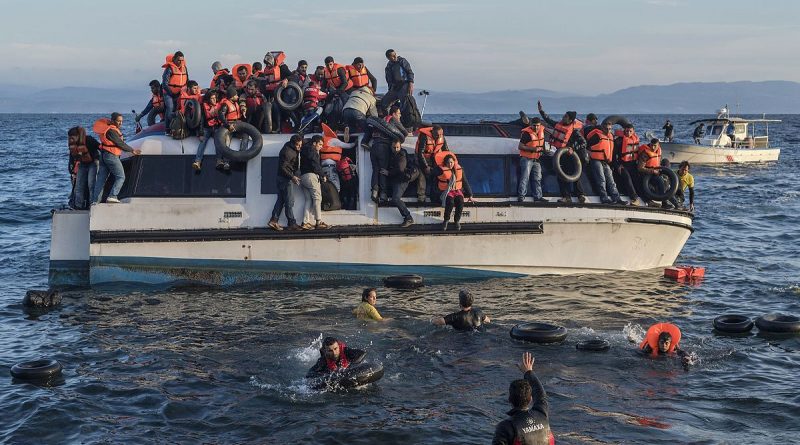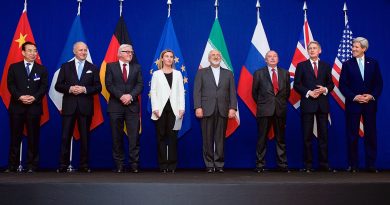Conflict and Migration: Vulnerability and Plurality in Host States
While doing research on Syrian refugees in urban settings in Turkey, I had a chance to engage in interesting conversations with anthropologists, practitioners, academics, and refugees on the issue of social conflict between migrant and host societies in Turkey. Here, “ethno-religious diversity is fragile and easily slipping into conflict” while “the maintenance of ethnic boundaries in the public sphere is discouraged and their reproduction is confined to the private sphere.”
Incidentally, discouraging the maintenance of ethnic boundaries is a typical operation of a modern secular state: it is therefore interesting that this point is raised about Turkey, which is now supposedly on the verge of an ‘Islamisation’ of the country.
Is ethno-religious diversity is fragile and potentially slipping into conflict?
But what it is more interesting in this debate is the presupposition that ethno-religious diversity is fragile and potentially slipping into conflict. There is little doubt that ethno-religious communities can easily become the subjects (in both meanings, the actor and the target) of a spiral of ethnic violence, but there is a reluctance on part of migration studies to focus on what such ‘slipping’ entails.
Short of believing that diversity per se is going to produce conflict – a position discredited by Orientalism and post-structural/discourse analysts – or that the state should erect or reinforce ethnic boundaries to ‘divide’ potential antagonists (a security-focused perspective embraced by many European countries confronting the so-called ‘migration crisis’), how can we tackle this issue?
The role of marginality
The preliminary findings of an ongoing research on Syrian refugees in Ankara suggest that cultural, social and familial community boundaries are reinforced by migrants as a coping mechanism to face the psychological and economic harshness of exile. Family networks and ethnic solidarity are indeed crucial for the bare survival of migrants, who in so doing end up reinforcing their own ‘otherness’ vis-à-vis host societies while blaming them for discrimination vis-à-vis the newcomers.
My point is that such boomerang mechanism is triggered by the marginality – legal, political, social, and economic – in which migrants find themselves in the host countries. The governance/public policy dimension, which is crucial in determining the marginality of refugees, is very often overlooked by scholars and policy makers alike. The latter focus on ‘ethnicity’ as a convenient label: a catch all paradigm for scholars grappling with the complexity of contemporary societies, a convenient scapegoat for policy makers unable to secure welfare and protection, and a veritable war strategy to divide opponents and to win support, as the Syrian conflict has clearly shown.
The situation in Turkey
Turkey has been widely praised for its dealing with the Syrian crisis: from 2014, it is the bigger host state in the world, now hosting about 2,7 million people at great economic and political costs. Besides the obvious pressure on public resources, the migration wave has brought to the fore the vulnerability of parts of the host community: the Turkish poor, who feel they are now in competition with the refugees for jobs and welfare state provisions.
It is undeniable that social antagonism is not confined to lower classes, and that many Turk landlords and entrepreneurs are taking advantage of Syrian lodgers and daily workers; Nevertheless, most migrants in Ankara are working class people turned jobless and homeless by the war at home, and the clashes in Ankara and Gaziantep have mainly occurred between Syrian and Turk shop keepers or students in public overcrowded schools.
Rethinking the modern state
The issue of migration and conflict require that we cast a fresh look at the trajectory of the modern state: the state as a producer of poverty and marginalisation (denounced by the critics of modernist and neo-liberal development) and the state as perpetrator of violence against civilians (as put forward by theorists of ‘new wars’ like Mary Kaldor). Indeed, the Syrian refugee epitomizes a contemporary condition that might well become a feature of our contemporary ‘modernity’.
Yet this is not unavoidable: the above reflection points to the need to revisit domestic economic policies that produce marginality and to approach refugee-producing situations in a more holistic way, rather than using humanitarian and asylum tools as substitutes for political strategy.
In our globally connected and mobile world, it is all too evident that: first, waiting to deal with a problem until it reaches a country’s borders is not sustainable; and second, providing protection should mobilize financial and political resources at the regional and global level. Instead, the reaction of European governments to the ‘migration crisis’ have offered a sorry spectacle of ineptitude and inability to stand by their self-proclaimed founding values – universal human rights.
We are far away from tackling the crucial point, one that no host countries (Arab, Middle eastern and Western alike) has shown the slightest inclination to ponder, and that even human rights staunch supporters miss: the need to consider migrants as political equal, i.e. to constitute a political space where a migrant speaks for him/herself, rather than being controlled though ‘selected acts of kindness’ and humanitarian charity.
Not to do so means reducing our democracies to bordered spaces of security, trading such domestic security for justice and plurality, and ultimately granting the governments of ‘fortress states’ a power position from which they control and disempower migrants and citizens alike.
Syrian and Iraqi refugees in the Mediterranean, Photo by Ggia / CC BY-SA 4.0
![]() This work is licensed under a Creative Commons Attribution-NonCommercial-ShareAlike 4.0 International License.
This work is licensed under a Creative Commons Attribution-NonCommercial-ShareAlike 4.0 International License.




